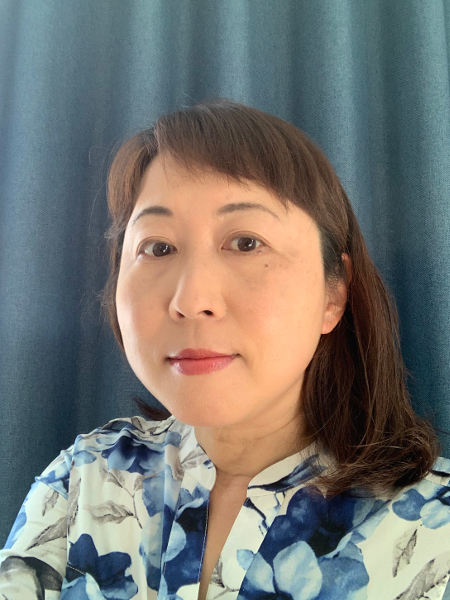 益尾知佐子,东京大学博士,现为九州大学比较社会文化研究院教授。她出生于日本佐贺县,成长于福冈县,16岁第一次坐飞机去美国纽约州做交换留学生,回国后就读东京大学教养学部国际关系课程。在学时到北京大学国际关系学院进修过两次,开始研究中国对外政策以及围绕中国的国际关系。在日本国际问题研究所工作之后,2004-2007年她担任哈佛大学傅高义教授的研究助手,2008年在九州大学任教。2014-2015年应傅教授的邀请,再任哈佛燕京学社共同研究学者。2019年,在中国社会科学院亚太全球战略研究院和外交学院做访问学者。2021年开始兼任日本国际问题研究所客座研究员。同年她获得第14届“中曽根康弘赏优秀赏”。益尾的主要着书包括:《中国的行动原理》(中公新书,2019年);《中国政治外交的转折点》(东京大学出版社,2010年);《中国外交史》(东京大学出版社,2017年)。日文翻译作品有傅高义著作的《中国和日本》《邓小平时代》。最近,经常在《周刊东洋经济》《日本经济新闻》等日本国内杂志和报纸发表评论,也在其它国家的刊物用英文和中文投稿(北大国际关系学院的《中国国际战略评论》、印度的Maritime Affairs等)。2022年7月,《参考消息》也转载她的文章。中国的老朋友们习惯叫她 “苏琪”。
益尾知佐子,东京大学博士,现为九州大学比较社会文化研究院教授。她出生于日本佐贺县,成长于福冈县,16岁第一次坐飞机去美国纽约州做交换留学生,回国后就读东京大学教养学部国际关系课程。在学时到北京大学国际关系学院进修过两次,开始研究中国对外政策以及围绕中国的国际关系。在日本国际问题研究所工作之后,2004-2007年她担任哈佛大学傅高义教授的研究助手,2008年在九州大学任教。2014-2015年应傅教授的邀请,再任哈佛燕京学社共同研究学者。2019年,在中国社会科学院亚太全球战略研究院和外交学院做访问学者。2021年开始兼任日本国际问题研究所客座研究员。同年她获得第14届“中曽根康弘赏优秀赏”。益尾的主要着书包括:《中国的行动原理》(中公新书,2019年);《中国政治外交的转折点》(东京大学出版社,2010年);《中国外交史》(东京大学出版社,2017年)。日文翻译作品有傅高义著作的《中国和日本》《邓小平时代》。最近,经常在《周刊东洋经济》《日本经济新闻》等日本国内杂志和报纸发表评论,也在其它国家的刊物用英文和中文投稿(北大国际关系学院的《中国国际战略评论》、印度的Maritime Affairs等)。2022年7月,《参考消息》也转载她的文章。中国的老朋友们习惯叫她 “苏琪”。摘要:
本文概述了21世纪初约20年间于东海区域的日中关系动向。1996年,日中两国都批准了《联合国海洋法公约》,但由于中国对广大海域的主张,无法立即划定专属经济海域。为了稳定东海情势,两国于1997年至2008年间签署了三份外交协议。然而,中国最终并未遵守所有协议。当日本方面发现难以通过谈判与中国解决问题之际,中国海监船于2008年底首次入侵尖阁诸岛领海,明确挑战了日本的主权。2010年及2012年发生的尖阁诸岛事件急遽加深了两国关系的紧张程度。由于中国继续在东海区域进行“以武力单方面改变现状”,日本逐渐开始寻求对中国采取硬平衡策略。具体措施包括加强日美同盟、提升发动海上警备行动命令的速度、加强南西诸岛的防卫力量、保持反击能力等,中国在东海的行动让日本的防卫政策发生了重大变化。此外,日本进一步利用海内外对中国强硬政策的反感,成功强化了与对中国加强警戒的国家之间的国际合作。然而,随着区域安全情势越来越紧张,最近人们也开始担心邻接东海的台湾情势可能带来的影响。
摘要:
本文概述了21世紀初約20年間於東海區域的日中關係動向。1996年,日中兩國都批准了《聯合國海洋法公約》,但由於中國對廣大海域的主張,無法立即劃定專屬經濟海域。為了穩定東海情勢,兩國於1997年至2008年間簽署了三份外交協議。然而,中國最終並未遵守所有協議。當日本方面發現難以透過談判與中國解決問題之際,中國海監船於2008年底首次入侵尖閣諸島領海,明確挑戰了日本的主權。2010年及2012年發生的尖閣諸島事件急遽加深了兩國關係的緊張程度。由於中國繼續在東海區域進行「以武力單方面改變現狀」,日本逐漸開始尋求對中國採取硬性平衡策略。具體措施包括加強日美同盟、提升發動海上警備行動命令的速度、加強南西諸島的防衛力量、保持反擊能力等,中國在東海的行動讓日本的防衛政策發生了重大變化。此外,日本進一步利用海內外對中國強硬政策的反感,成功強化了與對中國加強警戒的國家之間的國際合作。然而,隨著區域安全情勢越來越緊張,最近人們也開始擔心鄰接東海的台灣情勢可能帶來的影響。
Abstract:
This paper outlines the developments in Sino-Japanese relations over the East China Sea mainly in the first two decades of the twenty-first century. Both Japan and China ratified the UN Convention on the Law of the Sea in 1996, but could not delimit their Exclusive Economic Zones in a short period due to China’s excessive claim. To stabilize the situation in the East China Sea, the two countries signed three diplomatic agreements between 1997 and 2008. However, China consequently failed to comply with all of them. When Tokyo found it difficult to settle issues through negotiations with Beijing, the Chinese coastguard vessels made their first incursion into the territorial water of the Senkaku Islands in December 2008, challenging Japanese sovereignty in a clear manner. The Senkaku incidents occurred in 2010 and 2012 escalated tensions in the bilateral relationship to an unprecedented level. China’s continued “unilateral attempts to change the status quo by force” in the East China Sea led Japan to gradually seek hard balancing measures against China. They included strengthening the alliance with the United States, quickening the procedures for ordering defensive actions on the sea, bolstering defense deployment in its south-western islands, and obtaining counterattack capabilities against foreign missiles. Tokyo also took advantage of international backlash against China’s aggressive measures to reinforce its cooperation with countries that were increasingly wary of Beijing. While the security tensions over the East China Sea remained to be high, there is growing concern today over China’s possible military incursion into Taiwan and its impact on the Japan-China relations.